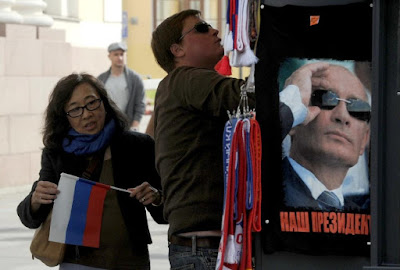 |
A picture
taken on September 11, 2015 in Saudi Arabia's holy Muslim city of Mecca
shows a
construction crane after it crashed into the Grand Mosque (AFP Photo)
|
Mecca
(Saudi Arabia) (AFP) - Saudi authorities said Saturday that Islam's annual hajj
pilgrimage will go ahead despite a crane collapse that killed 107 people at
Mecca's Grand Mosque, where crowds returned to pray a day after the tragedy.
Hundreds of
thousands of pilgrims had already arrived in Mecca for the hajj, a must for all
able-bodied Muslims who can afford it, when the massive red and white crane
collapsed during rain and high winds on Friday.
Parts of
the Grand Mosque, one of Islam's holiest sites, remained sealed off Saturday
around the toppled crane, which also injured around 200 people when it fell
into a courtyard.
But there
was little mourning among pilgrims, who snapped pictures of the wreckage and
continued with their prayers and rituals.
"I
wish I had died in the accident, as it happened at a holy hour and in a holy
place," Egyptian pilgrim Mohammed Ibrahim told AFP.
The
accident occurred only about an hour before evening mahgrib prayers on the
Muslim weekly day of prayer.
 |
A massive
construction crane crashed into Mecca's Grand Mosque in stormy
weather on
September 11, 2015, killing at least 107 people and injuring 238. (AFP
Photo/STR)
|
Om Salma, a
Moroccan pilgrim, said "our phones have not stopped ringing since
yesterday with relatives calling to check on us."
Indonesians
and Indians were among those killed when the crane collapsed, while the injured
included Malaysians, Egyptians and Iranians.
A Saudi
official said the hajj, expected to start on September 21, would proceed
despite the tragedy.
"It
definitely will not affect the hajj this season, and the affected part will
probably be fixed in a few days," said the official, who declined to be
named.
An
investigative committee has "immediately and urgently" begun
searching for the cause of the collapse, the official Saudi Press Agency said.
The
contractor has been directed to ensure the safety of all other cranes at the
site, it added.
The cranes
poke into the air over the sprawling mosque expansion taking place beneath the
Mecca Royal Clock Tower, the world's third-tallest building, at 601 metres
(1,972 feet).
For years,
work has been underway on a 400,000 square metre (4.3 million square feet)
expansion of the Grand Mosque to allow it to accommodate up to 2.2 million
people at once.
Abdel Aziz
Naqoor, who said he works at the mosque, told AFP he saw the massive
construction crane fall during the storm.
"If it
weren't for Al-Tawaf bridge the injuries and deaths would have been
worse," he said, referring to a covered walkway which broke the crane's
fall and surrounds the holy Kaaba.
The Kaaba
is a massive cube-shaped structure at the centre of the mosque towards which
Muslims worldwide pray.
 |
Saudi
governer of the Mecca region Khaled al-Faisal (C) listens to aides of the
Grand
Mosque of Mecca after a construction crane crashed into it on
September 11 (AFP
Photo/STR)
|
A witness
said the winds were so strong that they shook his car and tossed billboards
around.
'Act of
God'
Pictures of
the incident on Twitter showed bloodied bodies strewn across the courtyard,
where part of the crane came to rest atop an ornate, arched and colonnaded
section of the complex.
A video on
YouTube showed people screaming and rushing around following a loud crash.
Saudis and
foreigners lined up in the street to give blood in response to the tragedy.
Irfan
al-Alawi, co-founder of the Mecca-based Islamic Heritage Research Foundation,
suggested that authorities were negligent by having a series of cranes
overlooking the mosque.
"They
do not care about the heritage, and they do not care about health and
safety," he told AFP.
Alawi is an
outspoken critic of redevelopment at the holy sites, which he says is wiping
away tangible links to the Muslim Prophet Mohammed.
But an
engineer for the Saudi Binladin Group, the developer, told AFP the crane was
installed in "an extremely professional way" and there was no
technical problem.
"It
was an act of God", he said.
 |
A picture
taken on October 5, 2014, shows construction cranes at the
Grand mosque in
Mecca. (AFP Photo/Mohammed Al-Shaikh)
|
Saudi
Binladin Group belongs to the family of the late Al-Qaeda leader Osama bin
Laden.
Sheikh
Ahmed al-Ghamdi, former head of Mecca's religious police, told AFP the accident
is a "test" from God.
"We
need to accept what happened," he said, calling at the same time for a
thorough investigation.
Condolences
came in from around the world, including from Arab leaders, as well as from
Britain, Canada, India and Nigeria.
This was
not the first tragedy to strike Mecca pilgrims, though the hajj has been nearly
incident-free in recent years.
In 2006,
several hundred died in a stampede during the Stoning of the Devil ritual in
nearby Mina, following a similar incident two years earlier.































